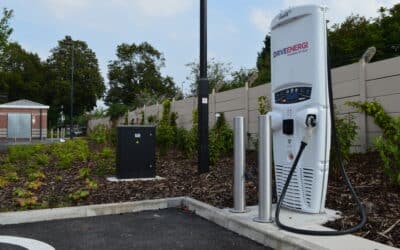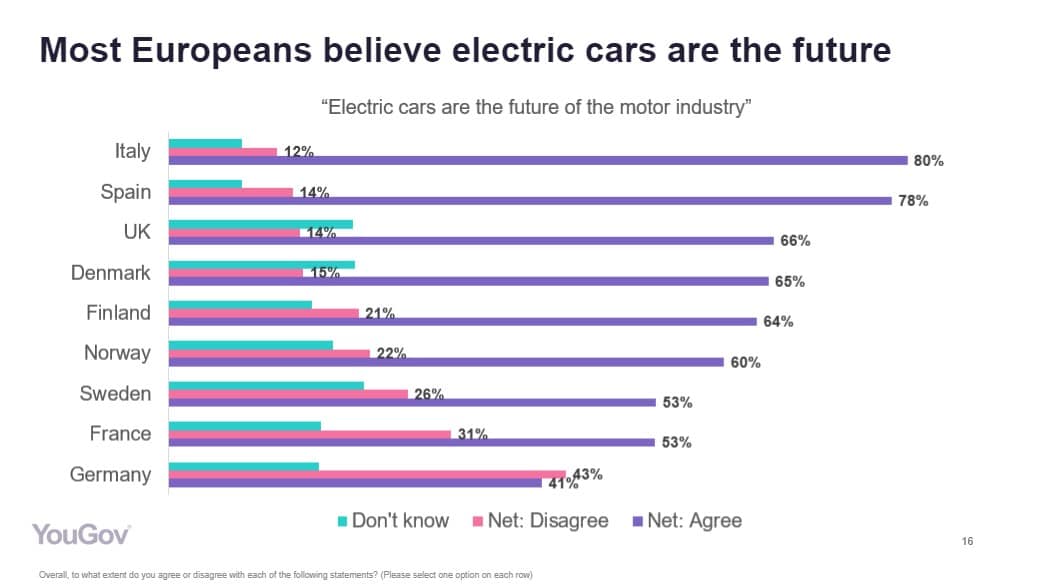Our recent webinar, The European Electric Car Market 2020, delved into the findings of this white paper, which combined syndicated BrandIndex and Profiles data with deep-dive custom research.
Hosted by Mickey Stacey – YouGov’s Marketing Insights Director – and Bianca Bruhn, our European CEO, the webinar revealed that the pandemic has neither dampened or improved enthusiasm for these vehicles: with intent to purchase at 54% in January and 55% in February, any change is well within the margin of error. Cars with internal combustion engines still dominate the market, with 53% of those polled owning a petrol car and 33% driving a diesel car.
At 3% apiece, hybrid and electric drivers represent a very small proportion of Europe’s car owners. But that isn’t the case everywhere, and each market varies in different ways. In Norway, for example, electric car drivers account for 15% of all drivers thanks to favourable legislative and tax incentives. In Italy, 15% drive vehicles powered by liquid petroleum gas (LPG).
Tesla: an industry outlier
The webinar went on to focus on a particularly high-profile brand in the electric car space: Tesla. The electric-only manufacturer is an industry outlier thanks to its mercurial CEO, Elon Musk – and this is reflected in its above average positive and negative buzz scores. While the industry average scores peak at slightly above 3.0, Tesla’s peak positive scores exceed 12.0 – and its peak negative scores exceed 8.0.
Beyond its presence in the news – for good and bad – Tesla’s target audience differs from the industry norm in a number of crucial ways. Drivers are more likely to be men and more likely to be older – a fifth are males aged 45 to 54 (compared to 11% of all car owners in the market) while 17% are over 55 (compared to 11% of all car owners in market). Women over 55 amount to 12% of Tesla owners and 5% of all drivers.
A more important dividing line may be income: two in five (40%) have a household income in excess of £50,000 in comparison to just a quarter (26%) of all drivers).
In terms of their general attitudes, Tesla drivers are more likely to be forward-looking: 91% would consider getting solar panels compared to 64% of all drivers in our sample, while the same percentage (91%) say that AI could be helpful on a day to day basis compared to 69% of all drivers.
The webinar also touched on key barriers to purchasing an electric car, the differences between hybrid car owners and electric car owners, and the issues diesel vehicles are having in terms of public perception across all nine European countries.
Find all the insights from the whitepaper into how people see the future of electric vehicles














